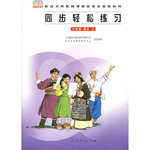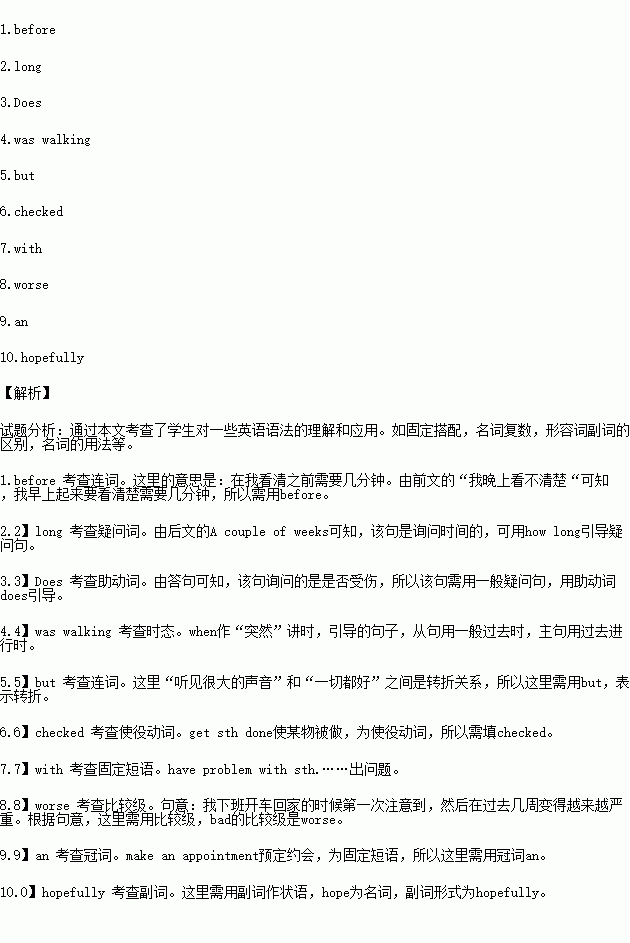题目内容
阅读下面材料,在空白处填入适当的内容(1个单词)或括号内单词的正确形式。
Patient: Good morning, doctor.
Doctor: Morning. What seems to be the trouble?
Patent: It’s my vision. I can’t see well at night, and when I wake up in the morning, it takes me a few minutes 1. I can see clearly.
Doctor: OK. I’m going to take a closer look. Just relax. How 2. has this been going on?
Patient: A couple of weeks, I guess — wow, that’s bright!
Doctor: 3. it hurt when I do that?
Patient: Not exactly. It’s just really bright.
Doctor: OK. Please, go on.
Patient: Well, I 4. (walk) down to the basement in my house about three weeks ago when I slipped and bumped my head pretty hard on the steps.
Doctor: Where exactly did you hit your head?
Patient: Right on the back. I heard a loud sound, 5. everything seemed to be okay.
Doctor: You didn’t get it 6. (check) out then?
Patient: No, I didn’t. Well, a week passed, and all of a sudden I started to have problems 7. my sight. I first noticed it when I was driving back home from work. It’s gotten 8. (bad) over the past week.
Doctor: I’m glad you came. I’m going to order some tests, and I want to make 9. appointment for you to see a specialist tomorrow morning. 10. (hope), nothing is too serious.
 同步轻松练习系列答案
同步轻松练习系列答案 课课通课程标准思维方法与能力训练系列答案
课课通课程标准思维方法与能力训练系列答案

 don't get the _________ of being the oldest or the youngest. Some middle children become competitive and even rebel against (反抗) their parents. _________ many of them make peace in the family.
don't get the _________ of being the oldest or the youngest. Some middle children become competitive and even rebel against (反抗) their parents. _________ many of them make peace in the family.